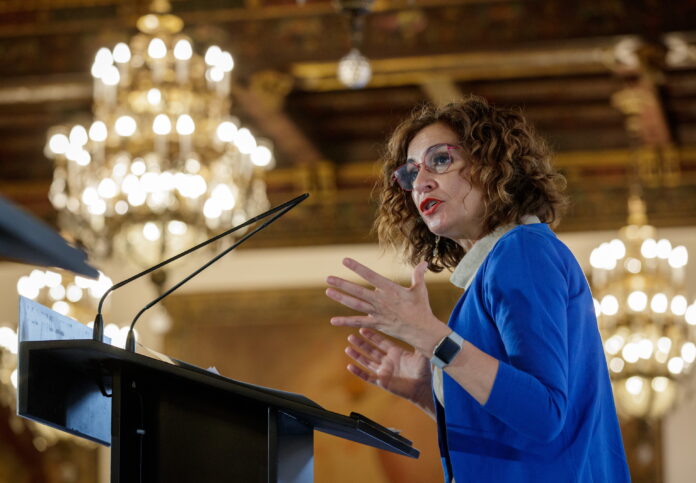The plan of energy saving and efficiency measures for the General State Administration (AGE), which the Government has approved this week, includes “the rationalization of the use of administrative buildings and their facilities.” And within these actions, the Executive undertakes to “guarantee” the shutdown “at night, weekends and holidays” of “air conditioning, lighting, and office automation installations.”
That is, in 2022 and after a historic rise in prices, the Executive assures that, now, the lights in public buildings, computers or air conditioning equipment will be controlled. An obvious example of the energy and economic waste that has prevailed in many areas of the Public Administration.
As stated in the Official State Gazette (BOE), that same plan also contemplates other measures that do nothing more than affirm that lack of control. For example: «The power contracted in the administrative buildings will be reviewed in accordance with peak consumption demands». It is undoubtedly striking that this point has not been addressed previously given the extra cost that can be derived from this situation. Or also that so far they have not been adapted, “as much as possible, the lighting and ventilation schedules of car parks, warehouses or areas of non-permanent occupation.”
The plan, which has been promoted by the Ministry of Finance and Public Function together with the Ecological Transition and the Demographic Challenge, is the document in which the Minister María Jesús Montero has cast the telework of officials. Despite the fact that he guaranteed that the decree would be ready for January, the Government has not processed it and Montero has imposed what he now calls “remote work” in order to “reduce the energy impact produced both by commuting to the workplace, as for the energy consumption in the workplace itself derived from the physical presence of the workers. Without negotiating it with the civil servants’ unions, she has branded it a “patch”, and with a 3/2 model: three days of remote work and two days in person at the position.
In the same context, the Government also wants to promote “public transport by public employees, prioritizing the commitment to this means of travel for those who have their residence in areas with difficult access to public transport or that the center of work is away from their homes. “The establishment of collective transport routes will be promoted and Transfer Plans will be promoted as actions aimed at encouraging public employees to modify their mobility habits on a large scale,” the text adds.
And the use of bicycles as a means of transport will also be encouraged. How? With a measure that perhaps does not seem very ambitious: «All public buildings with parking spaces for vehicles will establish spaces with secure bicycle parking spaces». Nothing more is said about it.
The Government also wants to reduce energy consumption by “limiting temperatures”. “Not exceeding 19ºC when it is necessary to use heating nor being below 27ºC when it is necessary to cool, when conventional energy consumption is required for this, states the standard.”
Another aspect that will be controlled is “the use of paper, plastics and consumables used daily in all administrative offices”, which suggests that this point did not have an exhaustive control either.
By virtue of this rule, self-consumption will also be promoted, articulating “a location identification system in the buildings and infrastructures of the General State Administration and the state institutional public sector to initiate the procedures that allow photovoltaic installations to be housed.” “Each public body will identify the main locations that are most suitable for the installation”, there will be an “inventory of roofs of the General State Administration and the state institutional public sector, with prioritization based on surface area and energy consumption” and “it will proceed to a first contracting of 50MW of capacity for its installation in 2022”, collects the text.
Conforms to The Trust Project criteria








